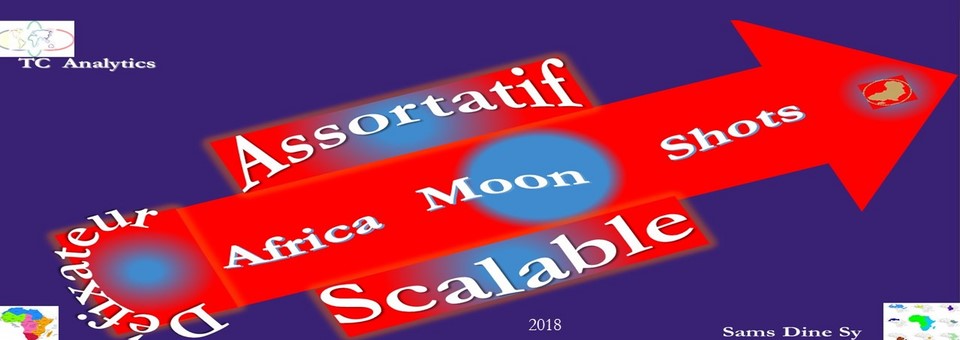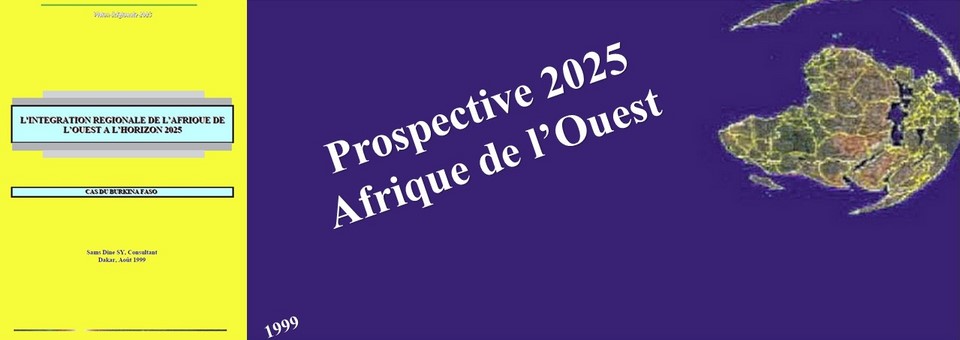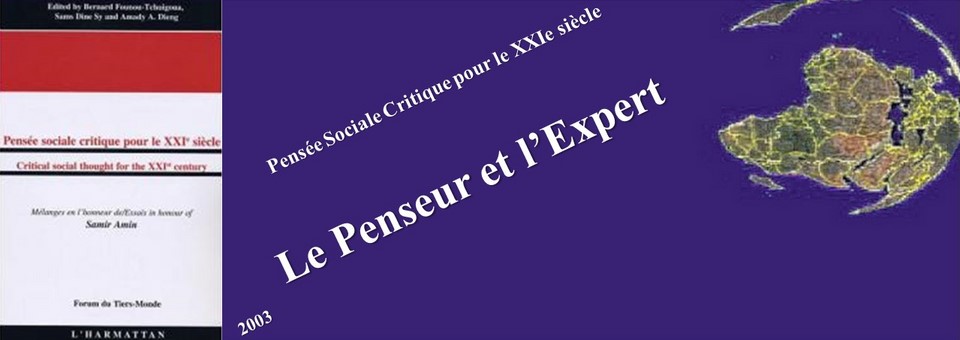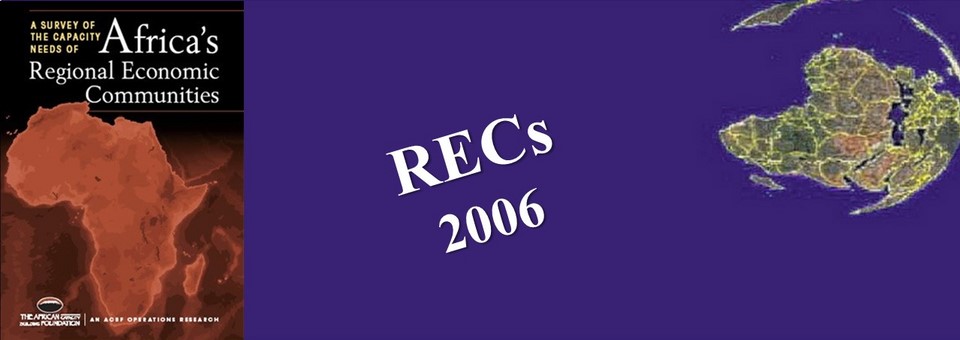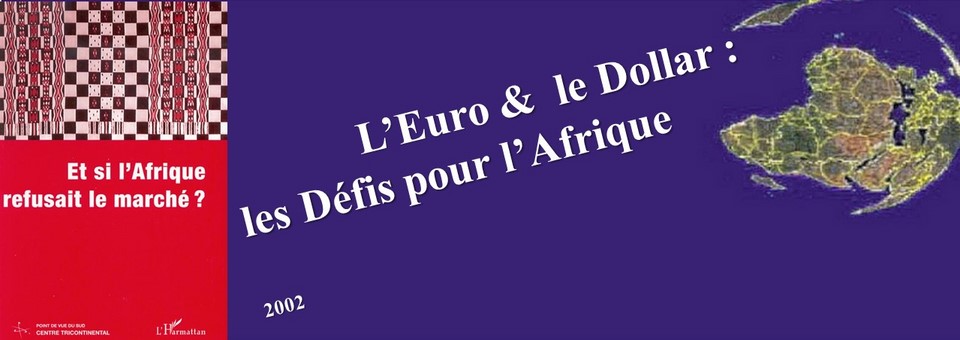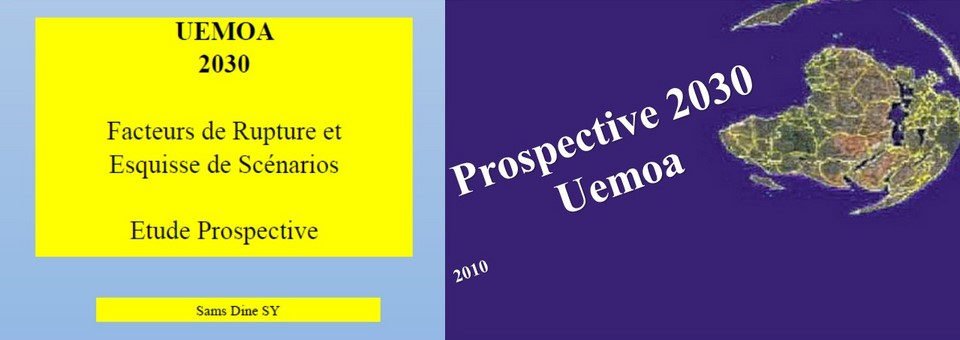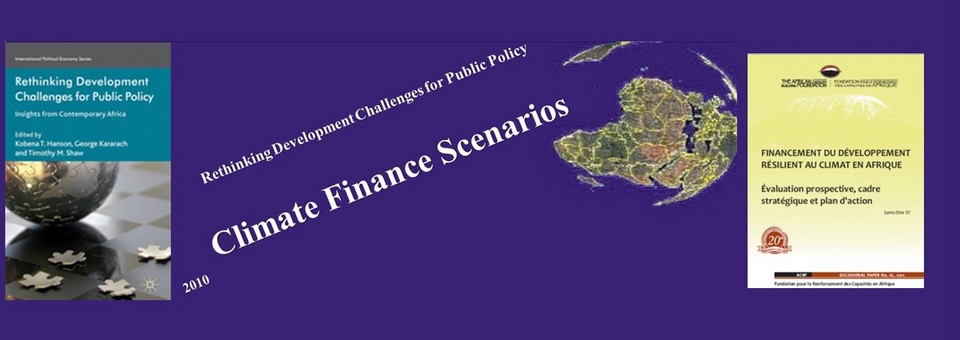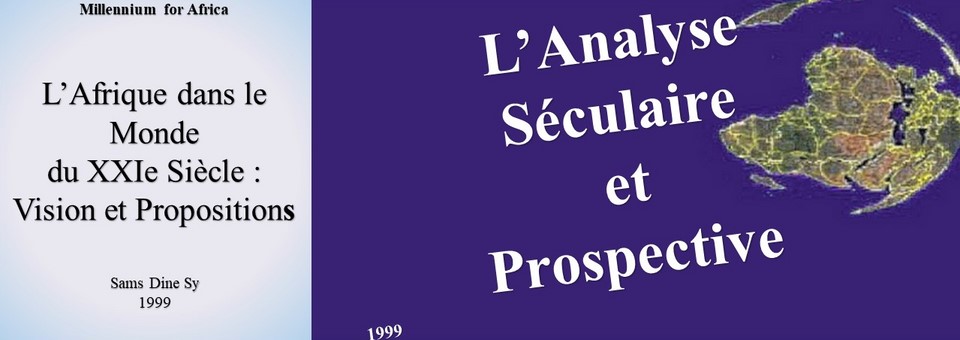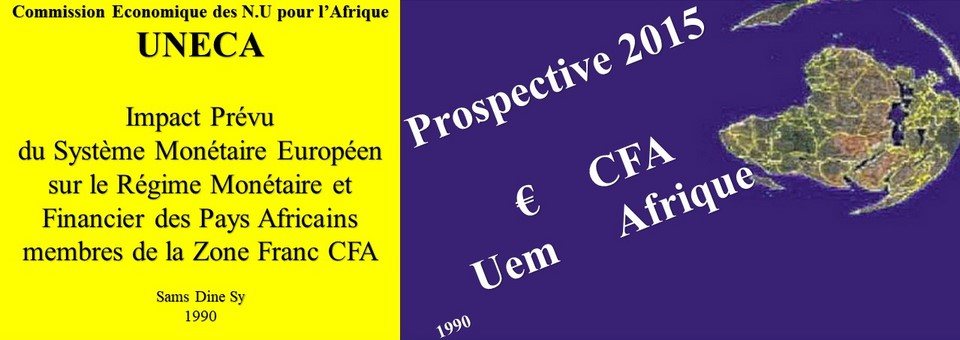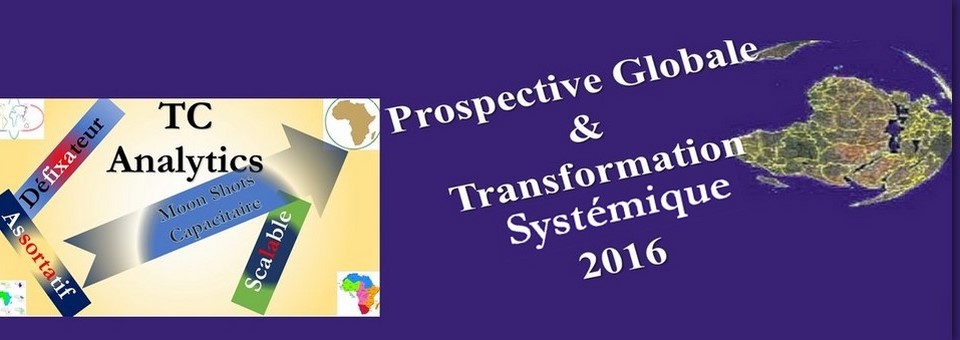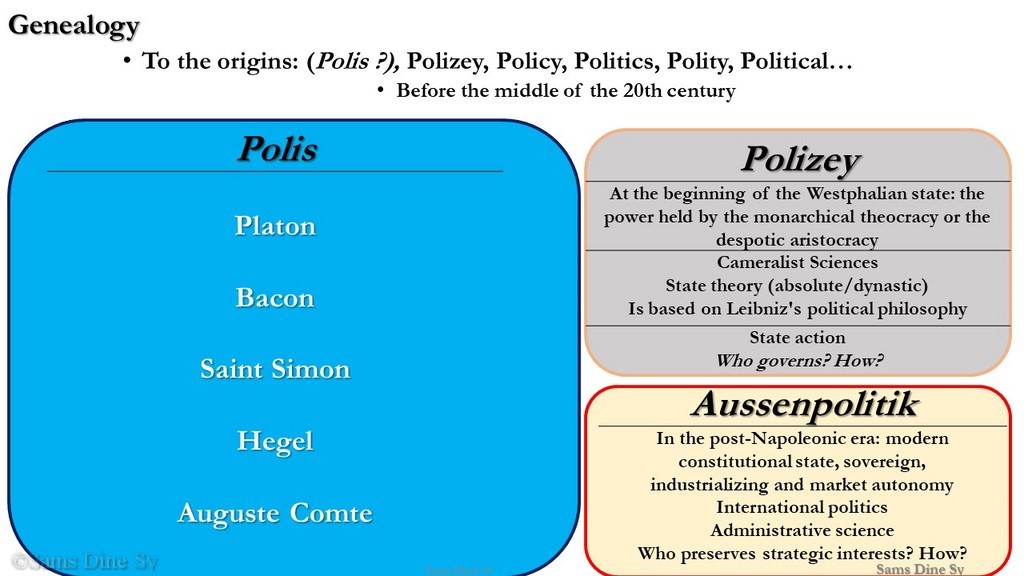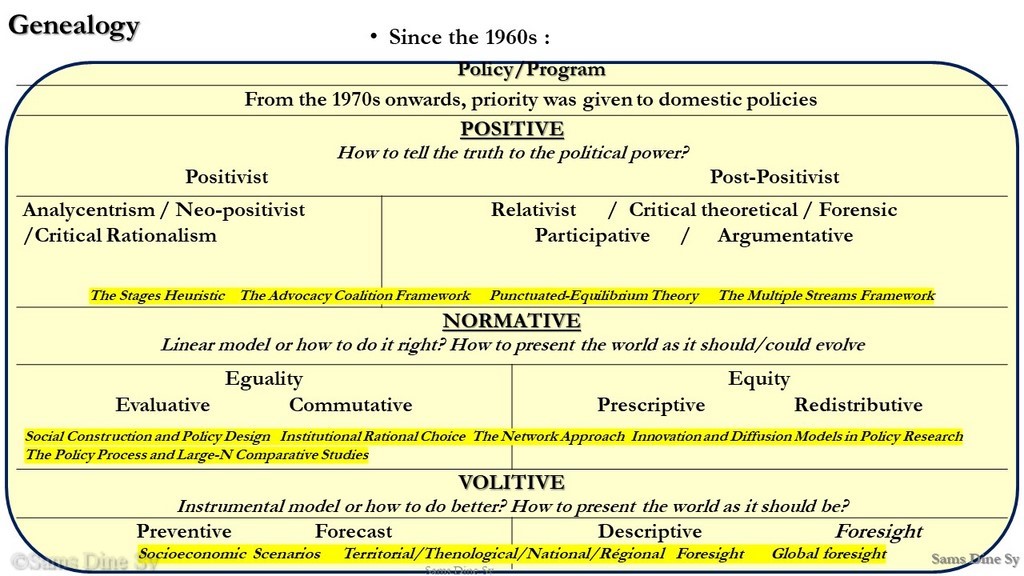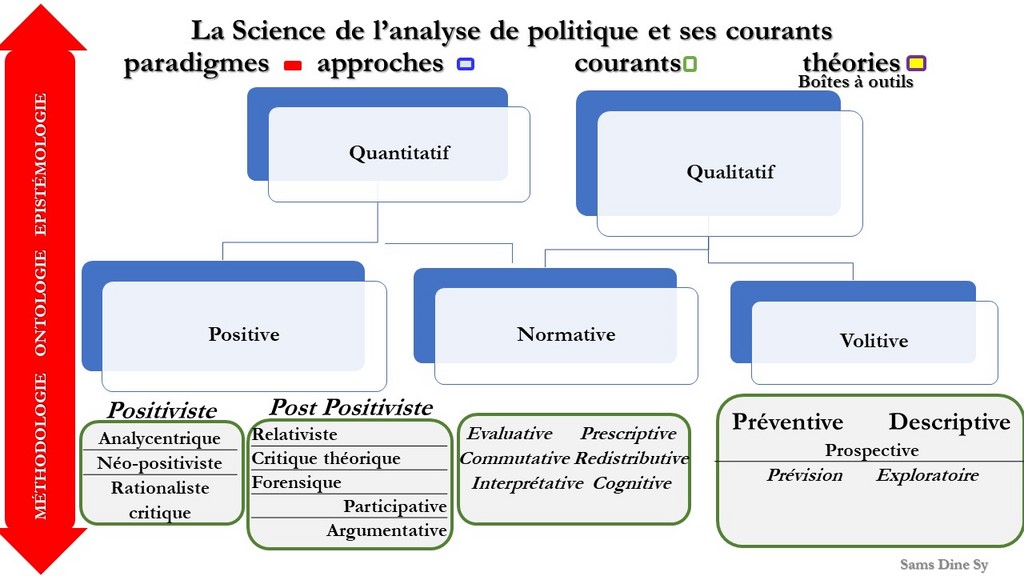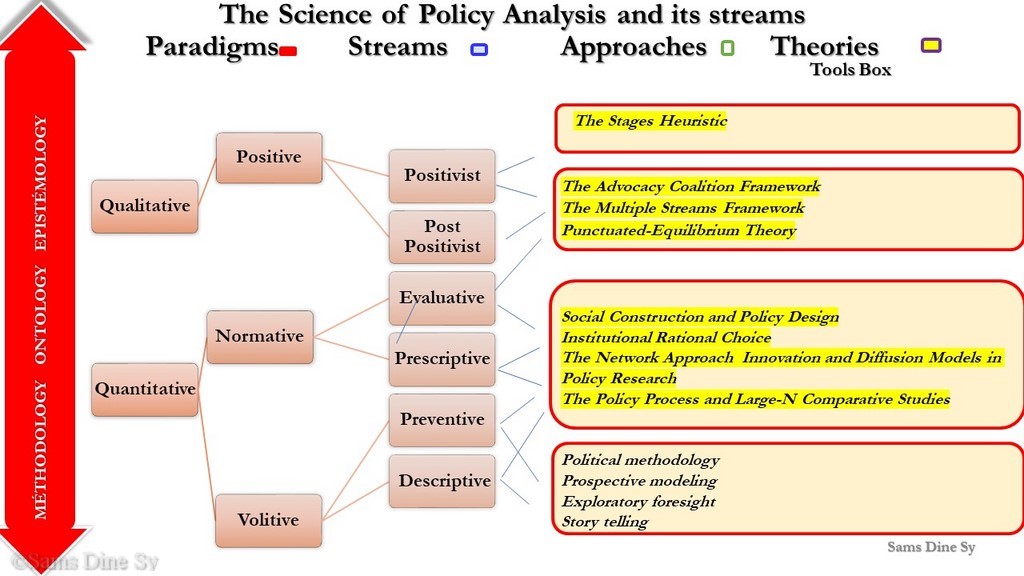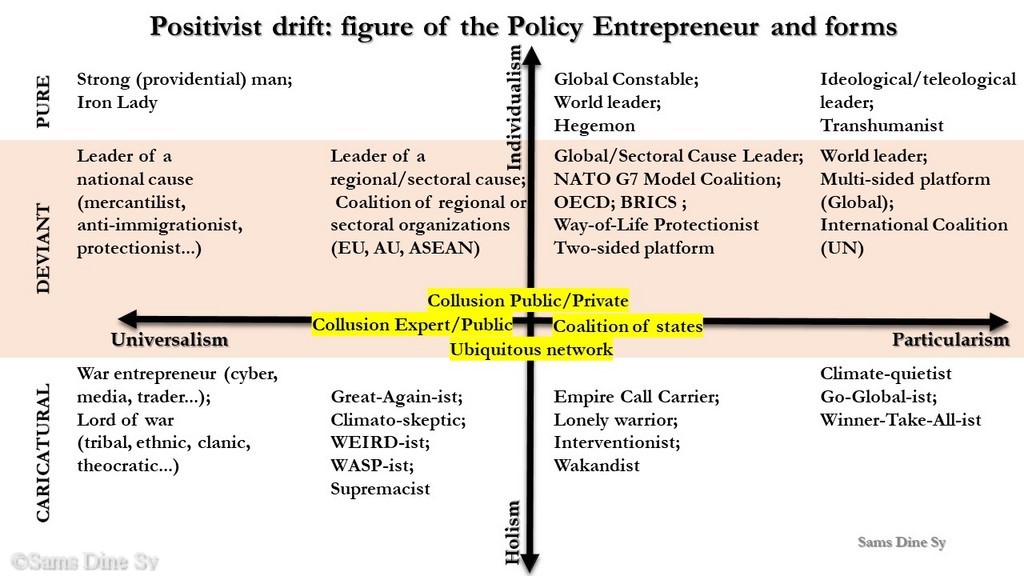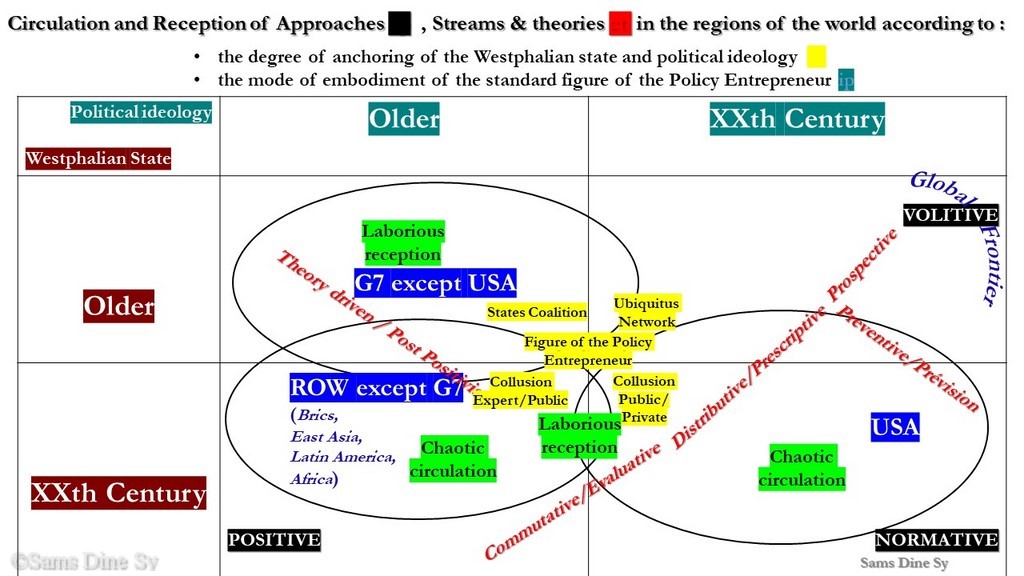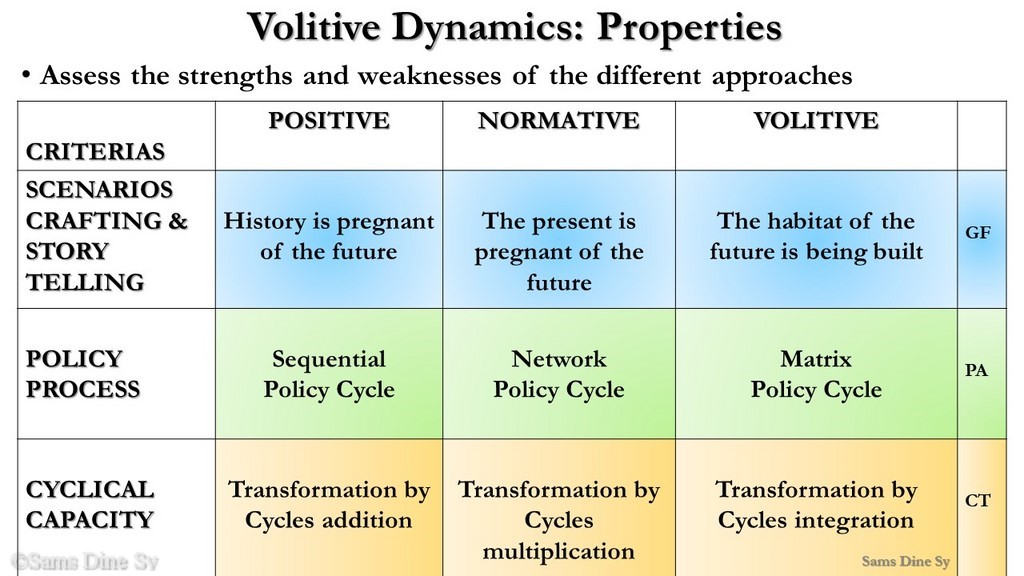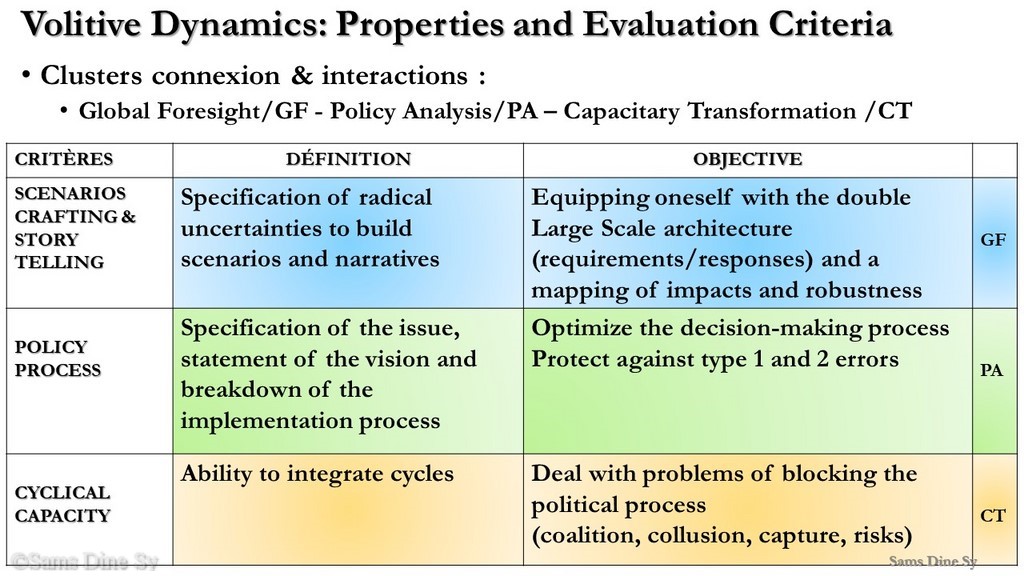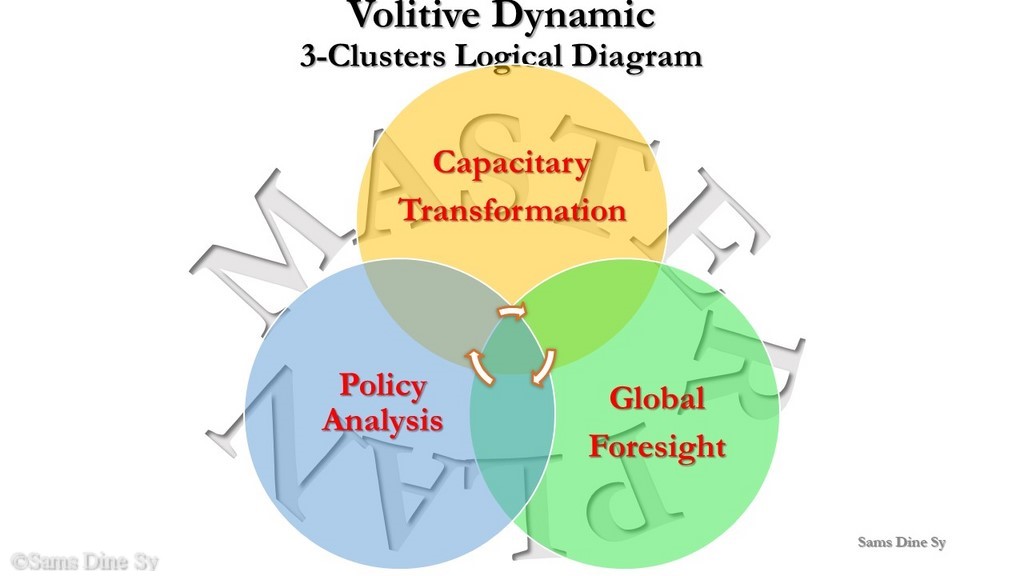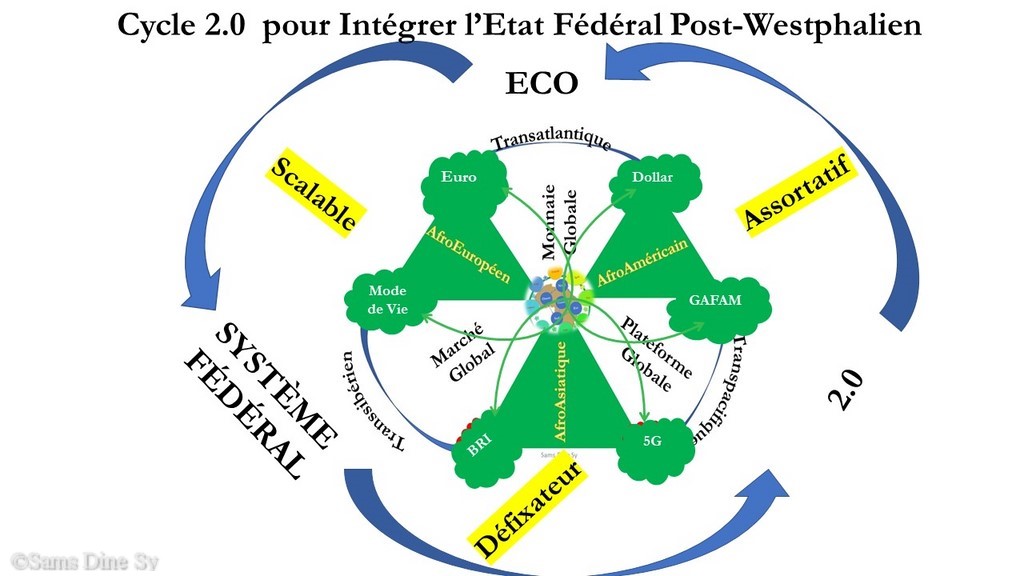POLICY ANALYSIS- Abstract - Keywords - Overview - Infography - Summary
ABSTRACT
Experimental science focused on the action of the Westphalian state, policy analysis consists of a hard core (positive policy analysis), surrounded by a protective crown (normative policy analysis).
This intellectual framework was vertiginously deployed in the USA during the second half of the 20th century before being exposed to chaotic circulation and laborious reception in the Rest of the World (ROW), particularly in Africa.
With the ambition for "speaking truth to power" and then for "making sense together", policy analysis is subject to constant questioning under the combined effect of new requirements and the massive invasion of other disciplines that delimit their territory in order to become operational.
The dominant paradigms are reaching their limits and exposing policy analysis to positivist drift under the effect of strategies of capture of the public regulator by interest groups with private agendas and the viral propagation of the figure of the policy entrepreneur embodied in pure, deviant and above all caricatural forms.
The emerging frontier of research places the discipline within a new dynamic (volitive policy analysis) that aims to integrate into public decision-making the long time, global space and transformative engagement to prepare for the advent of the scalable, assertive and defixator post-Westphalian federal state.
With the ambition for "speaking truth to power" and then for "making sense together", policy analysis is subject to constant questioning under the combined effect of new requirements and the massive invasion of other disciplines that delimit their territory in order to become operational.
The dominant paradigms are reaching their limits and exposing policy analysis to positivist drift under the effect of strategies of capture of the public regulator by interest groups with private agendas and the viral propagation of the figure of the policy entrepreneur embodied in pure, deviant and above all caricatural forms.
The emerging frontier of research places the discipline within a new dynamic (volitive policy analysis) that aims to integrate into public decision-making the long time, global space and transformative engagement to prepare for the advent of the scalable, assertive and defixator post-Westphalian federal state.
KEYWORDS
OVERVIEW
La science de l’analyse de politique est une discipline de recherche appliquée centrée sur l’activité étatique. La production des politiques publiques s’est nourrie des travaux de grands penseurs, de Platon à Auguste Comte, en passant par Bacon, Saint Simon, Hegel. Mais si l’action étatique constitue l’objet central de l’analyse de politique d’autres disciplines ont investi certaines problèmes spécifiques ou transversaux. Ainsi, au-delà de la philosophie et de la sociologie politique, la quasi-totalité des sciences et des techniques s’est emparée de cet objet pour y marquer son territoire : géopolitique, biopolitique, économie politique, histoire politique, gestion publique, ingénierie politique, écologie politique, développement politique, innovation politique, études politiques, anthropologie politique, communication politique, marketing politique, méthodologie politique, religion politique, forensique (liste non exhaustive).
La science de l’analyse de politique s’est construite à mesure que l’Etat westphalien (1648) européen s’est étendu au monde entier surtout après la grande vague de décolonisation. Ballotée au fil des siècles entre causes nationales/dynastiques puis impériales/industrielles, elle n’a connu ce déploiement fulgurant qu’à partir de la seconde moitié du XXe siècle aux USA. L’Etat fédéral l’a institutionnalisé dès le milieu des années 70 au sein d’une administration en quête de capacité à formuler et mettre en œuvre des bonnes politiques, se démarquant de la tradition philosophique westphalienne européenne du pouvoir qui tire sa légitimité de l’exercice de la puissance publique à travers la distribution de l’autorité et la main mise sur le service public.
Entre temps le nombre d’états-nation a quadruplé rien qu’au cours du dernier siècle, tous plus attachés les uns que les autres au principe de la souveraineté - une croyance devenue sacrée au point que tout abandon d’une miette équivaut à une trahison (E. Lazlo). Il n’empêche que la validité de ce principe est sans cesse remise en cause par des facteurs qui affectent la légitimité de l’intervention publique : l’interdépendance stratégique et des chocs, l’intégration et la mobilité, les disruptions technologiques et les événements extrêmes.
Se proclamant science expérimentale, le noyau dur de l’analyse de politique a d’abord prétendu « dire le vrai au pouvoir public » en se fondant sur une épistémologie positiviste et une méthode neutre et scientifique. L’approche normative en était la couronne protectrice, particulièrement pendant les années de crises, de désillusions, de délégitimation de la figure de l’entrepreneur politique ubiquitaire.
Ce qui est apparu au fil du temps comme une dérive positiviste, a donnée naissance au sein ou à la marge de la discipline à une multitude de courants et théories qui, sans entamer le noyau dur, se sont efforcés de « fabriquer du sens ensemble ». Face à cette ambition qui nécessite d’intégrer dans les décisions publiques aussi bien le temps long que l’espace global, le courant positiviste montre ses limites. Cette exigence déclenche la dynamique volitive qui constitue à présent la frontière de l’analyse de politique où différents producteurs de sens se côtoient, s’appuyant tous sur une démarche prospective tantôt normative et préventive pour la combiner avec le noyau dur positiviste, tantôt exploratoire et globale pour préparer l’avènement de l’état post-westphalien et en dessiner le Master Plan.
La science de l’analyse de politique s’est construite à mesure que l’Etat westphalien (1648) européen s’est étendu au monde entier surtout après la grande vague de décolonisation. Ballotée au fil des siècles entre causes nationales/dynastiques puis impériales/industrielles, elle n’a connu ce déploiement fulgurant qu’à partir de la seconde moitié du XXe siècle aux USA. L’Etat fédéral l’a institutionnalisé dès le milieu des années 70 au sein d’une administration en quête de capacité à formuler et mettre en œuvre des bonnes politiques, se démarquant de la tradition philosophique westphalienne européenne du pouvoir qui tire sa légitimité de l’exercice de la puissance publique à travers la distribution de l’autorité et la main mise sur le service public.
Entre temps le nombre d’états-nation a quadruplé rien qu’au cours du dernier siècle, tous plus attachés les uns que les autres au principe de la souveraineté - une croyance devenue sacrée au point que tout abandon d’une miette équivaut à une trahison (E. Lazlo). Il n’empêche que la validité de ce principe est sans cesse remise en cause par des facteurs qui affectent la légitimité de l’intervention publique : l’interdépendance stratégique et des chocs, l’intégration et la mobilité, les disruptions technologiques et les événements extrêmes.
Se proclamant science expérimentale, le noyau dur de l’analyse de politique a d’abord prétendu « dire le vrai au pouvoir public » en se fondant sur une épistémologie positiviste et une méthode neutre et scientifique. L’approche normative en était la couronne protectrice, particulièrement pendant les années de crises, de désillusions, de délégitimation de la figure de l’entrepreneur politique ubiquitaire.
Ce qui est apparu au fil du temps comme une dérive positiviste, a donnée naissance au sein ou à la marge de la discipline à une multitude de courants et théories qui, sans entamer le noyau dur, se sont efforcés de « fabriquer du sens ensemble ». Face à cette ambition qui nécessite d’intégrer dans les décisions publiques aussi bien le temps long que l’espace global, le courant positiviste montre ses limites. Cette exigence déclenche la dynamique volitive qui constitue à présent la frontière de l’analyse de politique où différents producteurs de sens se côtoient, s’appuyant tous sur une démarche prospective tantôt normative et préventive pour la combiner avec le noyau dur positiviste, tantôt exploratoire et globale pour préparer l’avènement de l’état post-westphalien et en dessiner le Master Plan.
